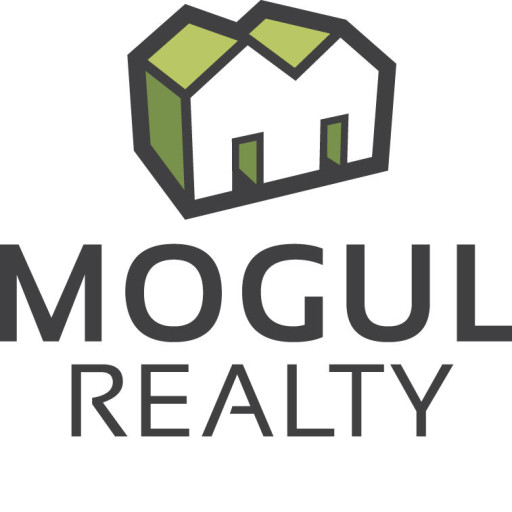Venturing Deeper: Unveiling Contrasting Viewpoints to Crafting Tailored Solutions
As we unfold the pages of Part Two in this comprehensive narrative, we delve deeper into the myriad facets of real estate investment. Our journey from understanding the foundational principles to scrutinizing the current market trends in Part One has armed us with a robust base. Now, it’s time to venture into more nuanced territories. The discourse will navigate through the spectrum of perspectives that define the real estate investment domain, challenging the norms and unveiling the counter-arguments that fuel a balanced and informed investment strategy.
The narrative will progressively refine the analysis, cross-referencing with related domains, and continuously probing deeper to unveil a well-rounded understanding. The journey will crescendo with a discerning look at how Mogul Realty can be your ally in navigating the complex real estate investment terrain, especially in the promising markets of St. Louis and St. Louis County.
Rewriting the given section with supporting market trends and projections, along with hypothetical examples, can provide a more enriched understanding of the real estate landscape. The redrafted section is as follows:

Sail Boat on Choppy Seas with Homes in the Background
Pioneering Current Realities and Future Horizons: Real Estate Market Trends and Forecasts
As we sail through the tides of real estate investment, it’s imperative to have our compass calibrated to both the current market trends and the winds of future changes. This segment dives into the modern-day real estate scene while also casting its gaze on the horizon, painting a comprehensive picture for investors seeking to diversify through real estate.
Today’s real estate market is a confluence of traditional practices and modern technological innovations. Platforms enabling real estate crowdfunding, blockchain-powered property transactions, and AI-driven market analysis tools are reshaping the contours of real estate investment 1 2 3 4. Additionally, the green movement is leaving its footprint on the real estate scene with a growing inclination towards eco-friendly properties and sustainable building practices,
Yet, the ease of real estate access through digital platforms, while democratizing, also beckons questions on market saturation and potential bubble risks. The rapid tech advancements, though exhilarating, demand a continual learning curve from investors and real estate aficionados alike.
As we peer into the real estate crystal ball, the pathway towards sustainability and deeper tech integration seems likely to continue. The investment in green buildings and eco-friendly infrastructure is expected to gain traction, aligning with global sustainability objectives,
However, the cyclical nature of real estate markets and the overarching global economic conditions add a layer of complexity in sketching the future. The anticipated recession in 2023, spurred by global economic factors, is predicted to cause a dip in real estate investment and leasing activity, underscoring the impact of broader economic dynamics on the real estate domain. Despite these challenges, the real estate market worldwide is projected to grow by 3.52% from 2023 to 2028, showcasing the inherent resilience and long-term potential of real estate investments.
Moreover, the exploration of international real estate investment, especially in high-growth emerging markets, unveils a realm of opportunities, albeit with its own set of challenges stemming from diverse regulatory landscapes and geopolitical dynamics.
In wrapping up, understanding the current market landscape coupled with a discernible glimpse into the future is cardinal for investors aiming to chart a course through the real estate investment waters. The blend of traditional investment avenues with modern-day tech advancements and a growing narrative of sustainability are elements poised to shape the real estate investment landscape in the foreseeable future, offering a diversified platter of opportunities for the discerning investor.

Real-estate Moguls and their Properties
The Scale of Discourse: Weighing Contrasting Viewpoints in Real Estate Investment
In the narrative of real estate investment, the discourse often meanders towards the comparison between direct property ownership and alternative investment avenues like REITs (Real Estate Investment Trusts) and real estate crowdfunding platforms. Each of these pathways presents its unique set of merits and challenges, echoing the diverse preferences and risk appetites of investors.
Direct Property Ownership: A Tangible Asset with Hands-on Control
Direct property ownership is often heralded for the control it accords to investors. It’s a pathway that resonates with individuals who appreciate the tangibility of their investments. The allure of holding a concrete asset, coupled with the potential for rental income and capital appreciation, often draws investors towards this traditional investment route. However, it’s not without its challenges. Direct property ownership demands a substantial capital outlay, savvy in property management, and a keen eye for market opportunities.
REITs and Crowdfunding: Liquidity and Lower Capital Outlay
On the other side of the spectrum, REITs and crowdfunding platforms emerge as modern-day conduits to real estate investment. They offer a departure from the capital-intensive nature of direct ownership, often appealing to investors with a preference for liquidity and lesser capital involvement. REITs, with their diversified portfolio of real estate assets, offer a blend of liquidity and dividend income, reminiscent of equity investments but with real estate as the underlying asset. Crowdfunding platforms, on the other hand, provide a collaborative avenue for investors to pool resources and venture into real estate projects that may have been out of reach individually.
Navigating Geographical Horizons: Domestic vs International Real Estate Investments
The discourse extends to the geographical scope of real estate investments. Domestic investments often offer a semblance of familiarity and potentially lower risk. However, venturing beyond borders into international real estate opens up a spectrum of opportunities in emerging markets with high growth potential. Yet, this pathway is laden with challenges stemming from currency exchange risks, geopolitical dynamics, and diverse regulatory landscapes.
Technology: A Double-Edged Sword in Real Estate Investment
The infusion of technology in real estate management and investment analysis is a narrative met with both enthusiasm and skepticism. Technology promises precision, accessibility, and enhanced decision-making through platforms facilitating real estate crowdfunding, blockchain-based property transactions, and AI-powered market analysis tools. However, it also presents challenges concerning market saturation, valuation accuracy, and a potential detachment from traditional, ground-level market analysis.
Regulatory Landscape: Shaping the Contours of Real Estate Investment
The regulatory landscape in real estate investment is a significant player, influencing market dynamics, property valuations, and investment returns. It shapes the legal framework within which real estate investments operate, often unveiling new challenges and opportunities for investors.
The contrasting viewpoints within the real estate investment domain offer a fertile ground for discourse, analysis, and informed decision-making. Each aspect, be it the choice between direct ownership and alternative investment avenues, the geographical scope of investments, the integration of technology, or the regulatory landscape, holds significant implications for investors. Through a balanced exploration of these varying viewpoints, investors can foster a well-rounded understanding of real estate investment, aiding in the crafting of robust investment strategies in the pursuit of portfolio diversification.

3D Real-Estate Puzzle
Piecing the Puzzle: Cross-Referencing and In-depth Analysis in Real Estate Investment
The realm of real estate investment is akin to a complex puzzle, with each piece representing a different facet of the market, investment strategies, or external influences. A meticulous analysis that cross-references various domains is paramount to see the larger picture and make informed decisions in real estate investment for portfolio diversification.
Cross-referencing real estate with other investment domains unveils a rich narrative. For instance, comparing real estate investment with traditional stock or bond investments illuminates the contrasting risk profiles, liquidity features, and potential returns. Real estate, often seen as a stable asset with tangible value, offers a buffer against market volatility common in stock markets. A study from the National Bureau of Economic Research underpins this, indicating that real estate has historically had a lower volatility compared to stocks and bonds. On the flip side, stocks and bonds provide higher liquidity, allowing investors to respond swiftly to market changes, albeit at the cost of higher volatility. For instance, during the 2008 financial crisis, stock markets plummeted sharply while real estate markets, although affected, demonstrated relative resilience.
Furthermore, an in-depth analysis of real estate investment necessitates a look at historical data, current market trends, and future projections. Analyzing historical case studies of real estate market performance during different economic climates, comparing it with present-day market dynamics, and forecasting future trends based on emerging technologies and global economic factors provide a well-rounded understanding.
Moreover, dissecting the impact of geopolitical factors, economic policies, and demographic changes on real estate values and investment returns is paramount. These external factors often shape the local real estate market dynamics, influencing property valuations, rental incomes, and overall investment returns. The Brexit referendum, for instance, led to uncertainty in the UK real estate market, affecting property values and investor confidence.
The discussion also extends to the evolving technological landscape and its impact on real estate investment and management. Technology has not only streamlined property management but also revolutionized market analysis and investment decision-making. However, it also poses challenges like market saturation and potentially inflated property valuations, warranting a balanced approach to leveraging technology in real estate investment.
A meticulous cross-referencing and in-depth analysis provide a robust foundation for making informed real estate investment decisions. The holistic exploration of real estate investment, juxtaposed with other investment domains, historical data, external influences, and technological advancements, unveils a multi-faceted narrative.

Row of Homes with Info Boxes
Forecasting the Horizon: Potential Outcomes and Likelihood in Real Estate Investment
As we navigate the intricate waters of real estate investment, forecasting the potential outcomes and assessing their likelihood is akin to setting the compass for a well-informed voyage. Real estate, with its myriad of investment avenues and external influencing factors, presents a spectrum of potential outcomes. This section aims to meticulously explore these outcomes, evaluate their likelihood based on historical data, current market dynamics, and emerging trends, all towards fostering a robust understanding to aid in portfolio diversification.
The traditional allure of real estate investment lies in its potential to provide a steady income through rentals and the promise of capital appreciation. The likelihood of these outcomes often hinges on several factors including the location, type of property, and the broader economic landscape. For instance, investing in well-located multi-family or commercial properties in a growing urban area may offer a higher likelihood of steady rental income and capital appreciation due to population growth and economic development.
On the other hand, the modern narrative of real estate investment has been enriched with alternative avenues like REITs and real estate crowdfunding platforms. These avenues, while providing easier access to the real estate market, carry their own set of potential outcomes. REITs, with their diversified property portfolios and professional management, offer a likelihood of steady dividend income. Real estate crowdfunding, with its project-specific investment approach, provides a platform for capital appreciation, albeit with potentially higher risks.
Furthermore, the geographical scope of real estate investments opens another vista of potential outcomes. Domestic real estate investments, with their familiarity and potentially lower regulatory hurdles, might present a relatively stable outcome. However, international real estate investments, especially in emerging markets, could offer higher capital appreciation due to rapid economic growth, albeit with increased risks due to geopolitical factors and currency fluctuations.
Moreover, the evolving technological landscape is shaping the real estate market dynamics, influencing the potential outcomes. Technology-enhanced real estate management and blockchain-based property transactions promise to streamline operations and enhance transparency, potentially leading to better-informed investment decisions and improved investment outcomes. However, the rapid pace of technological advancements also poses challenges, warranting a balanced approach to leveraging technology in real estate investment.
The discourse also extends to the regulatory landscape, which significantly influences real estate market dynamics and investment outcomes. Regulatory changes can impact property valuations, rental income potential, and the overall attractiveness of real estate investments. Being abreast of the regulatory environment, both current and anticipated, is crucial for evaluating the likelihood of various investment outcomes.
Forecasting the potential outcomes and evaluating their likelihood is a nuanced exercise, demanding a thorough analysis intertwined with a sound understanding of the real estate investment landscape. The exploration herein aims to provide a well-rounded perspective, enabling investors to craft a robust real estate investment strategy for portfolio diversification.

Image Book of Real-Estate with Model Skyscrapers sitting on Top
Charting the Course: Reflections on Diversifying Your Portfolio with Real Estate
Embarking on the voyage of real estate investment for portfolio diversification is akin to charting a course through diverse terrains, each with its own set of treasures and trials. The narrative unfolded herein sought to provide a compass, aiding in navigating through the multifaceted domain of real estate investment. This concluding section aims to encapsulate the essence of the discourse, reflecting on the key takeaways, and providing a synthesized perspective to empower informed decision-making in real estate investment.
The traditional narrative of direct property ownership, juxtaposed with modern investment avenues like REITs and real estate crowdfunding platforms, unveiled a spectrum of opportunities each with its unique set of merits and challenges. For instance, a report by Nareit highlights the liquidity and dividend income benefits of REITs, providing a modern twist to real estate investment. On the flip side, the classic allure of direct property ownership, with its promise of control and tangible asset acquisition, remains a stalwart choice for many. The discourse further delved into the impact of technological advancements, like the emergence of AI-powered market analysis tools which have revolutionized real estate market trend analysis and predictive accuracy.
Moreover, the exploration ventured beyond the conventional, probing into diverse investment perspectives, and evaluating the contrasting viewpoints within the real estate investment domain. The meticulous cross-referencing and in-depth analysis provided a robust foundation for evaluating potential outcomes and their likelihood, weaving a rich tapestry of insights aimed at fostering a well-rounded understanding of real estate investment for portfolio diversification. For instance, comparing the stability and tangible asset value of real estate against the high liquidity yet volatile nature of stock investments, provided a nuanced insight into risk management and asset allocation strategies.
The realm of real estate investment offers a fertile ground for portfolio diversification, laden with a myriad of opportunities yet requiring a well-informed and balanced approach. The discourse herein aimed to provide a compass, aiding in navigating through the complex terrain of real estate investment towards achieving a diversified and resilient investment portfolio. As the quest for portfolio diversification through real estate investment continues, the insights and understanding gleaned from this narrative serve as a beacon, illuminating the path towards informed decision-making and optimized investment outcomes in the ever-evolving real estate investment domain. The unfolding narrative of international real estate investment, for instance, opens a vista of potential rewards yet comes with its share of geopolitical and currency exchange risks, underscoring the necessity for a well-rounded analysis and risk assessment.

Real-Estate Manager Working with an Investor
Navigating Real Estate Investments with Mogul Realty: Your Compass in St. Louis
The expedition through the realms of real estate investment, as elucidated in the preceding sections, reveals a landscape rich with opportunities yet laden with complexities. As the narrative unfurls towards its culmination, the spotlight now falls on how Mogul Realty, your seasoned companion in this voyage, can provide the requisite compass, especially in the vibrant markets of St. Louis and St. Louis County.
With two decades of entrenched experience in the real estate and property management industry, Mogul Realty stands as a beacon of expertise and reliability. Our forte lies in providing a holistic suite of services that cater to the diverse needs of investors looking to diversify their portfolios through real estate. The dynamic markets of St. Louis and St. Louis County, with their unique blend of historical charm and modern-day growth, present a fertile ground for real estate investments. Mogul Realty’s deep-rooted understanding of these local markets, fused with a global perspective, provides investors with a well-rounded approach towards achieving their real estate investment goals.
Our services encompass a spectrum of real estate facets, from market analysis and property selection to comprehensive property management services. In the realm of market analysis, our seasoned experts employ cutting-edge technology and data-driven methodologies to provide insights into property valuations, market trends, and investment potential. We aid investors in identifying lucrative opportunities in multi-family or commercial properties that not only align with their investment goals but also resonate with the growth trajectory of St. Louis and St. Louis County.
Furthermore, Mogul Realty’s property management services are tailored to alleviate the operational challenges associated with real estate investment. Our comprehensive suite covers tenant acquisition, maintenance, rent collection, and regulatory compliance, ensuring a seamless experience for our clients. Our objective is to optimize the return on investment while minimizing the operational hassles, enabling our clients to enjoy the fruits of their investment without the accompanying stress.
As the quest for portfolio diversification through real estate investment continues, having a reliable and experienced partner like Mogul Realty by your side can be a game-changer. Our deep-rooted expertise, comprehensive service suite, and a client-centric approach are designed to navigate the complex terrains of real estate investment, especially in the promising markets of St. Louis and St. Louis County. As we traverse the evolving landscape of real estate investment together, the aim remains to empower our clients with the insights, support, and confidence necessary to achieve their investment goals and financial growth.

